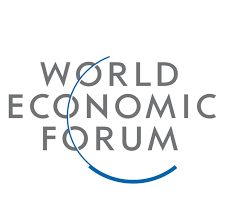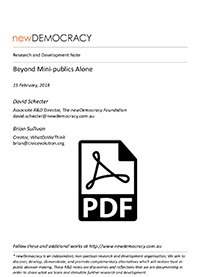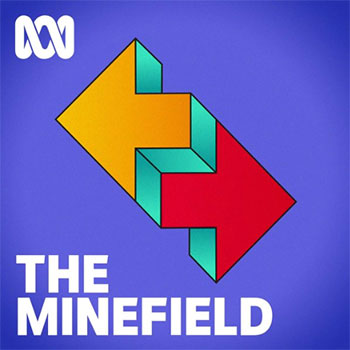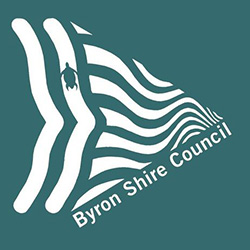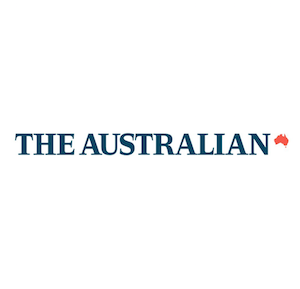Today elected representatives take the tough decisions about public finances behind closed doors. In doing so, democratic politicians rely on the advice of financial bureaucrats, who, often, cater to the political needs of the elected government. Politicians rarely ask voters what they think of budget options. They are no better at explaining the reasons for...Continue reading
SMH Oped. A citizens’ jury could solve our thorny constitutional questions
At the beginning of this month, I appeared before the federal parliamentary committee tasked with a number of questions, including political donations and campaign advertising. I politely proposed that politicians, when trying to regulate these matters, might be seen as both poacher and gamekeeper. I suggested that a citizens’ jury might help with that. What...Continue reading
Beyond Mini-publics Alone
David Schecter – Associate R&D Director, The newDemocracy FoundationBrian Sullivan – Creator, WhatDoWeThink What is the question? In recent years, Australia has seen many successful examples of incorporating mini-publics (See, Mini-publics) into public decision-making. Compared to the usual public engagement practices, these projects have been substantially more informed, more representative, more deliberative, and more influential. They have...Continue reading
Can Politics Be Freed from the Banality of Mass Culture? ABC Radio National
This week, we’re looking at the way politics has been invaded by mass culture. Content has become, at best, incidental to the real story, which is the entertainment-value of the political spectacle itself.
Inquiry looks to random jury model to resolve section 44 citizenship crisis
Dealing with disqualifications will require constitutional amendment, says head of panel on electoral matters. The inquiry examining the citizenship crisis in Australia’s parliament is considering the use of a random assembly to decide how best to repeal or replace the constitution’s disqualification of dual citizens. Linda Reynolds, chair of the joint standing committee on electoral...Continue reading
Why democracy doesn’t deliver
Many of us believe that democracy delivers our collective wisdom. The ascendancy of Donald Trump to the Presidency of the United States has jolted that faith. Trump’s victory epitomises the challenge of the popular vote. Elections are synonymous with democracy, but it is disconcerting to see how poorly that tool is serving us now. The...Continue reading
Why democracy doesn’t deliver. AFR
Many of us believe that democracy delivers our collective wisdom. The ascendancy of Donald Trump to the Presidency of the United States has jolted that faith. Trump’s victory epitomises the challenge of the popular vote.
Byron Shire Council – Trialling a community solutions panel (2018)
The Byron Shire is well known as a domestic and international tourist destination, with over two million annual visitors. Local residents and tourists alike place significant value on the unique character of the area and its lifestyle. The conundrum before Council is how to balance protection of that character with demands for more, and higher...Continue reading
Newman and Hinchliffe: Productive politics requires reform to end divisiveness
We come from different political backgrounds and views but we share one strong central belief — our political system appears to be broken. It’s time to fix it and we hope this is the year that the fix starts. We need to try some bold ideas. Tinkering with the edges won’t repair a toxic system...Continue reading

